
Gabriel Luna plays Tommy Miller in "The Last of Us." (Photo by Liane Hentscher/HBO)
The reality of Latino representation in the entertainment industry is that audiences and marketing campaigns create what we define as “representation”. Just look at the data and how recent reports outline a rise of representation in some areas of the business, countered by a lack of representation behind the camera.
The convention the Latino community falls into is in demanding a specific form of representation, or ignoring the achievements that do exist. Most recently, I’ve talked to peers, family members and colleagues in the industry to discuss the current state of Latino representation and how the second season of HBO Max’s “The Last of Us” can help us understand how audiences shape the conversation and who gets uplifted in the aftermath. It’s not only about who gets screen time, but who gets remembered.
Back in 2023, Pedro Pascal and Jenna Ortega made history, with both receiving Emmy nominations for leading roles. Since then, they’ve respectively and arguably become the leading Latino actors of this generation, who not only represent Latinos, but also the complexity of what our community is.
For fans of Jenna Ortega, the conversation has been about her choices, how her characters in the “Scream” franchise, her role in Ti West’s “X” (2022) and now her roles in two Tim Burton projects: “Wednesday” and “Beetlejuice 2” represent the goth moody side of Latinidad, escaping the traps of cookie-cutter Hollywood representation.
Chilean-American Pedro Pascal, born in Chile and whose family was forced to escape the dictatorship of Pinochet, has garnered nominations and recognition for his bold performances and has most notoriously become the DILF of our generation.
There has already been some great writing on Pedro's impact in “The Last of Us”, and as I write this now, it's important to talk about something:
Spoiler alert: the following contains major spoilers for Episode 2, Season 2
After the second episode of “The Last of Us”, many viewers, agreeingly so, were outraged at Pascal’s character, Joel Miller, being killed off. As heartbreaking as it is to realize we need to let go of Joel, it is critical to see all the powerful performances by other Latino performers and artists behind the camera.
Joel’s brother, Tommy Miller, played by Gabriel Luna, who is also in Season 1, is further introduced as the leader of this post-apocalyptic town. When Andrea Flores writes: “Seeing Miller argue with his brother about 'What is communism?’ is about as close to a Latino conversation we get in the show,” she is talking about how these two Latino brothers aren’t talking about abuelitas, immigration or conchas, which is what usually happens in dialogue written for Latino characters.

(Liane Hentscher/HBO)
This is not Gabriel Luna’s first apocalyptic project. Back in 2018, he appeared alongside Arnold Schwarzenegger in “Terminator: Dark Fate”. Luna notes that the diverse cast in “The Last of Us” is a strong reason people tune in. A champion of Latino representation, he also told the LA Times he avoided roles that play into stereotypes and tropes, like drug dealers. In the fourth season of “Agents of S.H.I.E.L.D.”, Luna also made a splash in the Marvel Universe as Robbie Reyes, aka the Latino Ghost Rider. Marvel fans and Luna himself have expressed interest in reprising the role.
So far, we’ve already seen the dramatic depths of what Luna can achieve as Pedro’s fictional brother. Tommy Miller is Joel’s little brother, who is the primary motivation for Joel to head west in the first season. We hear throughout the show just how important they are to each other.
Luna has an understated intensity, often playing layered characters with a calm but emotionally rich presence. In “The Last of Us”, he plays a father who is also a key leader in the protected town of Jackson. When he is not protecting his town by organizing a standoff against thousands of infected or going one-on-one with a massive bloater (an infected that is bigger and stronger), he brings a powerful performance in even the most subtle scenes.
But perhaps one of the most exciting and less-discussed aspects of season two is the arrival of Isabela Merced, a rising Peruvian-American actress and singer whose range and impact continue to grow with every new role she is in. In season two of “The Last of Us”, Merced plays Dina, a central character in Ellie’s life and one of the few to survive into the late stages of the franchise.
This casting is not only significant—it’s strategic.
Dina is a complex, smart, and multi-dimensional role, and Isabela Merced’s history of balancing strength and vulnerability on screen made her a perfect fit. Those of us who keep tabs on Latina representation will recognize her from earlier, family-friendly titles like “Dora and the Lost City of Gold”, but her recent work has taken a much sharper and more dramatic turn. From her role in “Sweet Girl” opposite Jason Momoa to “Turtles All the Way Down”, Merced continues to prove she’s capable of carrying narratives that center trauma, survival and love.
She has openly spoken about her struggles with representation and navigating her identity as a Latina in Hollywood, emphasizing how she had to fight for roles that weren’t rooted in cliché or cultural misrepresentation. What makes her portrayal of Dina so important is how “The Last of Us” allows her to avoid being pigeonholed into ethnic archetypes and instead exist as a full character with agency, romance, rage and heartbreak.
Beyond this show, Merced is on track to become one of the most prominent Latina leads in mainstream genre media. She’s currently set to appear in “Superman: Legacy” as Hawkgirl, making her one of the few Latinas to join the DC Universe in a major role. This trajectory—from Nickelodeon to HBO to DC—is not only rare, it’s inspiring. Her success underscores the importance of broadening the conversation about who gets to be seen as heroic, complex and deserving of the spotlight.

Isabela Merced plays Dina in "The Last of Us." (Liane Hentscher/HBO)
What ties Merced’s rising star to Pascal, Ortega, and Luna is how their careers challenge the old narratives about Latino presence in genre television and film. These are not actors filling diversity quotas—they are complex people, award-winning, culturally relevant and fan-favorite talents who bring depth to their performances regardless of whether or not their Latinidad is highlighted in the script. Their work forces us to ask: what does it mean to be seen in a post-representation era? Is it about being cast, or about having the power to shape the narrative?
In talking to my peers about “The Last of Us” and Latino presence in it, we keep coming back to this: it’s not that we want every character to loudly state their heritage or make tortillas in every episode. We just want to see ourselves exist as people who get to survive, love, lead and yes, sometimes die dramatically. But most importantly, we want to see ourselves across the spectrum. That includes the moody goth girls (Ortega), the action-packed heartthrobs (Pascal), the quiet warriors (Luna), and the fierce romantics (Merced).
These performances are not accidents. They are the result of years of advocacy, fighting for better scripts, better representation in writers' rooms and pushing back against the box Hollywood continues to put Latinos in. The story of Latino representation in “The Last of Us” is just one piece of a much larger narrative, one that continues to evolve with every episode, every casting announcement and every role that breaks the mold.
I saw a few folks post about how now that Pedro is gone, why watch? I say there is so much to see and be inspired by … if anything, an extension of what Pedro’s work truly represents.

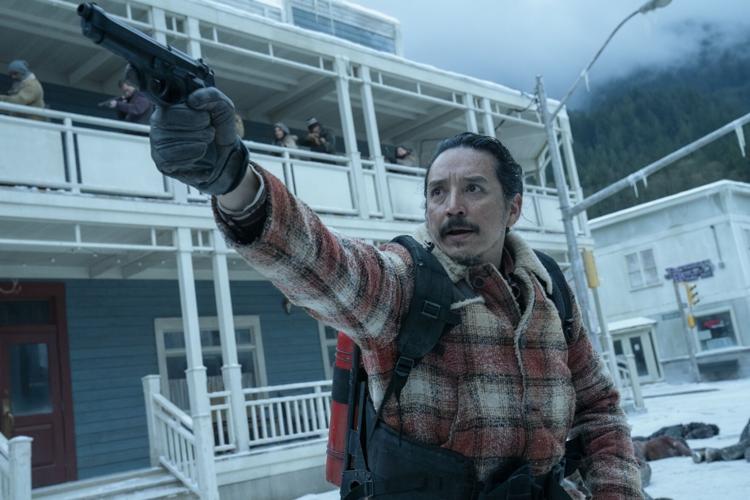

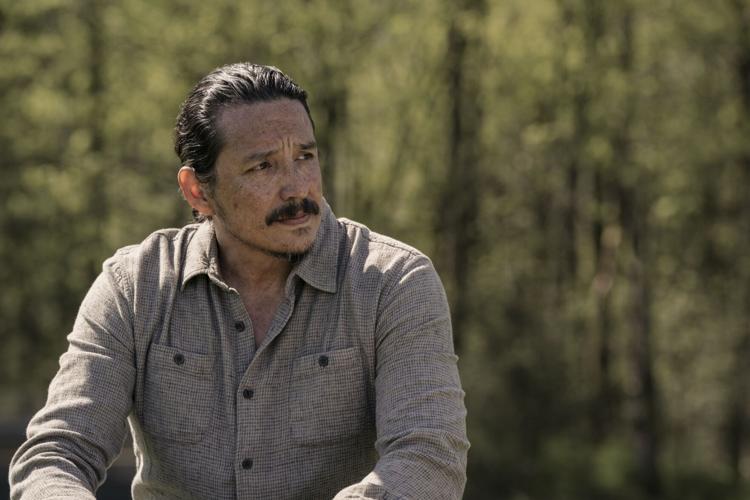
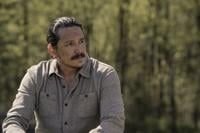
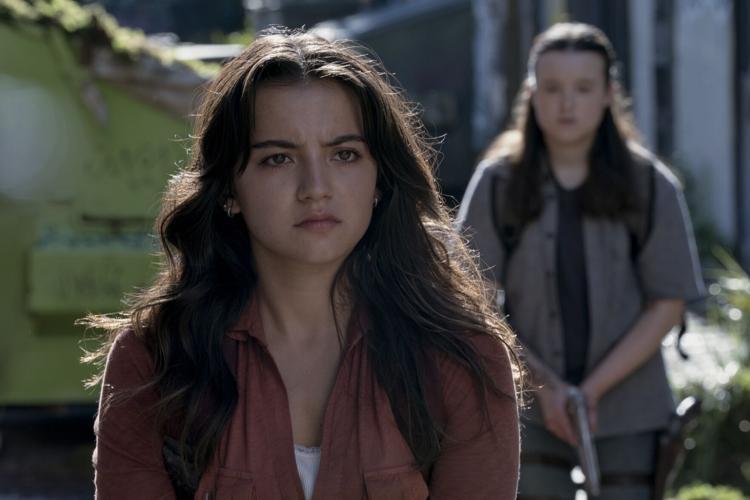


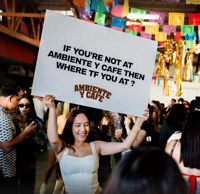

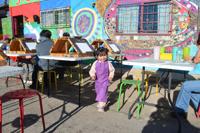



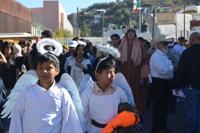
(0) comments
Welcome to the discussion.
Log In
Keep it Clean. Please avoid obscene, vulgar, lewd, racist or sexually-oriented language.
PLEASE TURN OFF YOUR CAPS LOCK.
Don't Threaten. Threats of harming another person will not be tolerated.
Be Truthful. Don't knowingly lie about anyone or anything.
Be Nice. No racism, sexism or any sort of -ism that is degrading to another person.
Be Proactive. Use the 'Report' link on each comment to let us know of abusive posts.
Share with Us. We'd love to hear eyewitness accounts, the history behind an article.